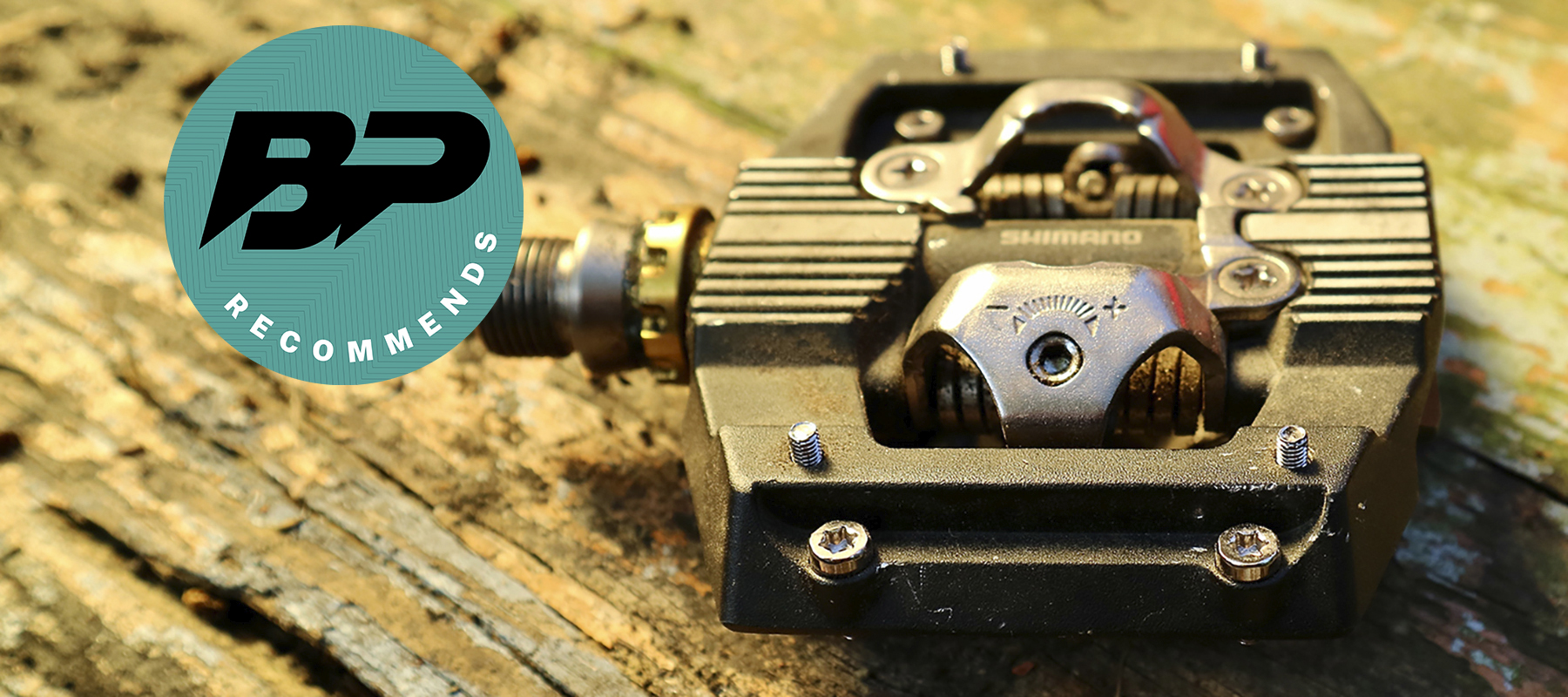Bike Perfect Verdict
Shimano’s Saint-level SPD is one of the bigger and heavier gravity/enduro clipless pedals on the market but the level of protection and ease of entry and exit are second to none. It’s also easy to set up, simple to service, and best of all, great value for money. If this is your first time on SPD pedals, this is the one to get into. They can handle a lot of abuse too.
Pros
- +
Adjustable release tension
- +
Plug and play bearing assembly
- +
Tough, reliable and easy to service
- +
Cracking value for money
Cons
- -
Custom tool needed for servicing
- -
A bit weighty compared to the competition
- -
Pedal pins have a T-15 Torx head, why?
Why trust BikePerfect
If you ignore the gravity/DH tag and weight, the Shimano Saint is a fantastic caged clipless pedal for trail riding. It has a large, forged alloy platform with a double-sided SPD binding and adjustable release tension.
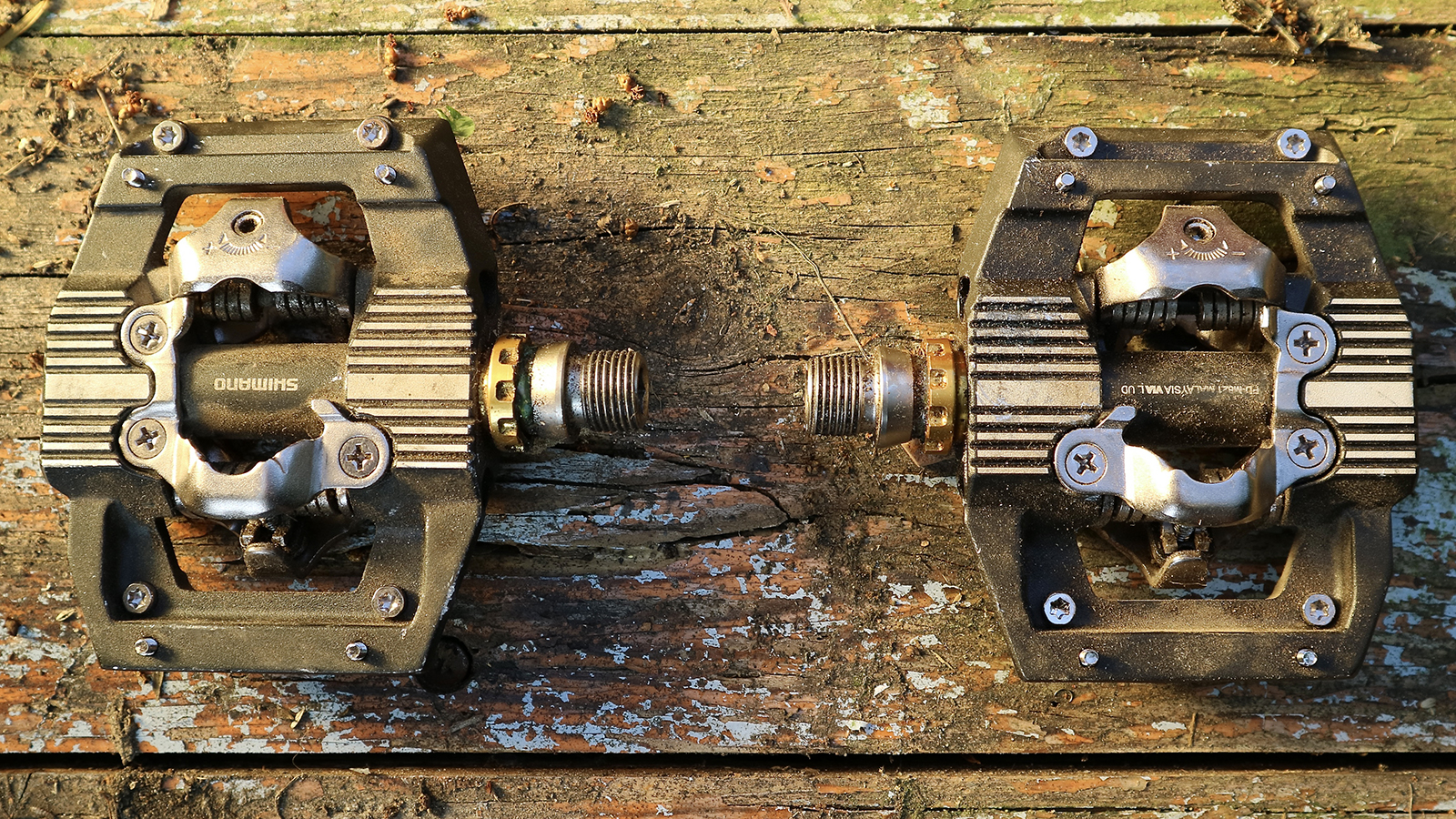
Design and specification
The binding mechanism is positioned in the center of a 77 x 100mm forged aluminum platform. To boost ground and obstacle clearance, it's stepped down either side and has angled corners. Shimano also channels out the outside edge to save a few grams and this means you won’t scuff the logo off. I know it shouldn’t matter but it does.
The areas either side of the binding have ridges machined into the surface to help grip and there are four pins either side, although they don’t come fitted, you have to fit them yourself. These thread in from the other side using a T-15 Torx, which I find a bit of an odd choice since it’s rare to have one in your toolbox, never mind on a trail-tool. Also, the release tension is done with a 3mm hex key, so why not one tool does all?
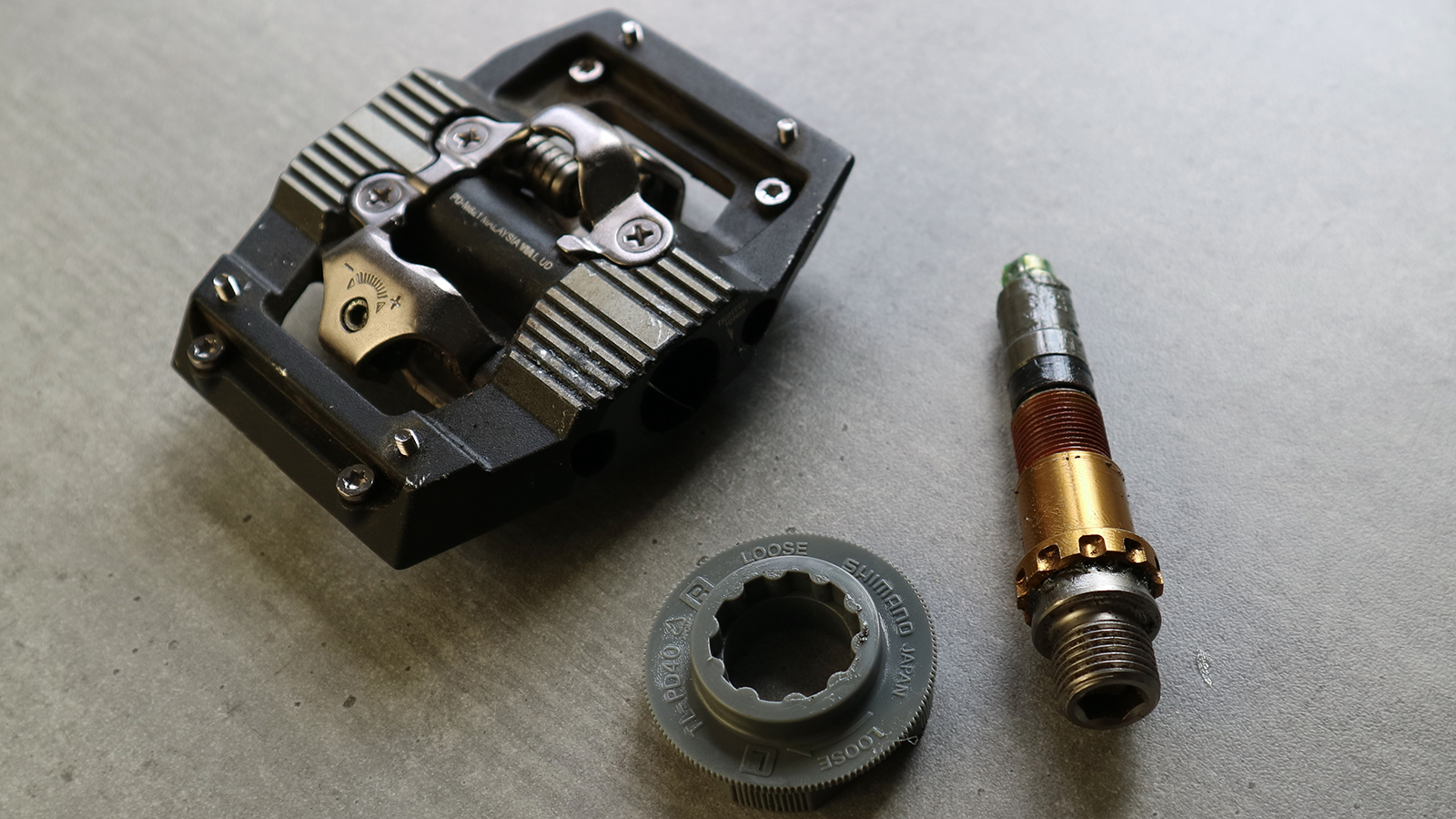
The Saint gets a cromo steel axle with some bling gold aluminum locking collars. These are part of what Shimano calls a sealed cartridge-bearing assembly. The way this is phrased suggests it’s like a cartridge bearing you’d find in a headset but they’re actually two sets of miniature ball bearings held via a small steel race. It sounds old-school because it is – Shimano has been running this assembly for as long as I can remember – but it works. Those mini bearings are effective at dealing with the different loads you see in pedals, they’re easy to service (you can just flush them with new grease), and they genuinely last a long time. The only issue is you’ll need to buy a TL-PD40 axle removal tool to extract the assembly as one isn’t included (though it used to be) in the box.
What is included is a set of single release SH-51 cold steel SPD cleats. The great thing about these is they are common across all Shimano SPD pedals stretching back nearly three decades. Unlike some coated/painted cleats, you don’t have to wait for them to bed in and they usually last a year to 18 months before they need replacing. When you do, they’re available in pretty much all bike shops the world over and are still reasonably priced.
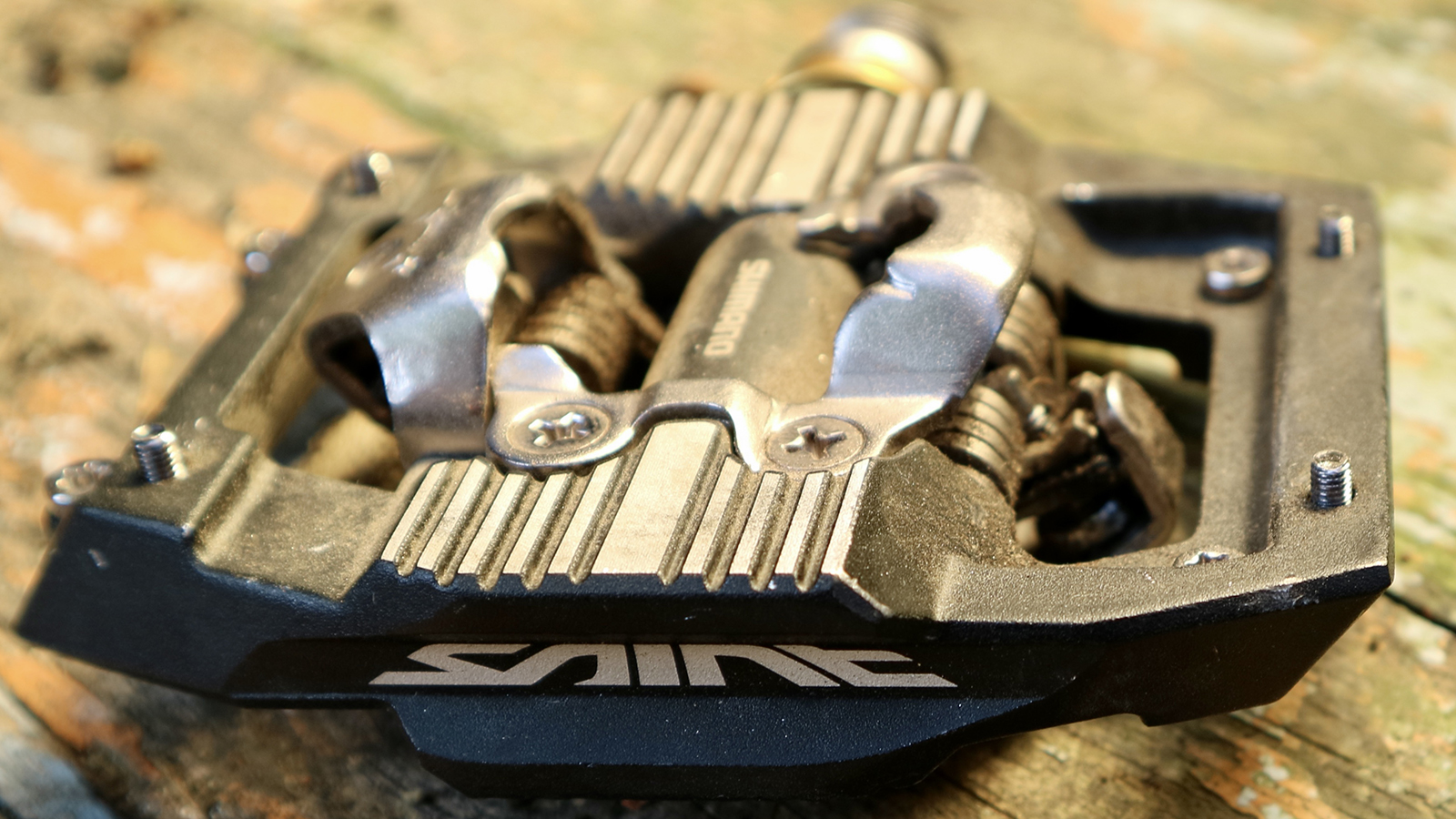
Performance
Setting up the cleats is dead simple too. On some modern shoes with a deep ‘cleat pocket’, you may need to shim the cleat, but most of the time you just bolt the cleat to the cleat nut using the extra-long bolts (note 4mm hex) and you’re ready to ride.
The SH-51 doesn’t have the most amount of lateral or rotational float, but it doesn’t have a wide release angle either. This means you can clip out quickly and easily twisting inwards, as well as out. I tend to do the former if I need to get in a hurry.
Some riders will argue there’s a bit of knack to clipping into an SPD but there’s a little angle on the rear binding claw that helps the cleat slide forward during the engagement phase. It sounds like there’s more going on than there is here, but clipping into the Saint is effortless. There’s a crisp, positive snap as the cleat locks in place and it’s pretty much the same deal getting out.
Depending on the conditions, mud and ice can clog the binding but there’s room for all of this to escape, and you can help it along its way by just twisting the cleat backwards and forwards.
With its big platform the Saint offers a good target to aim at and there is a decent amount of shoe traction when unclipped, although I’d question whether the large size and those side areas adds more support. I’ve done a lot of back-to-back testing with other platform clipless pedals and wearing a stiff cushioned trail shoe, 99 percent of the time I can’t feel any difference.
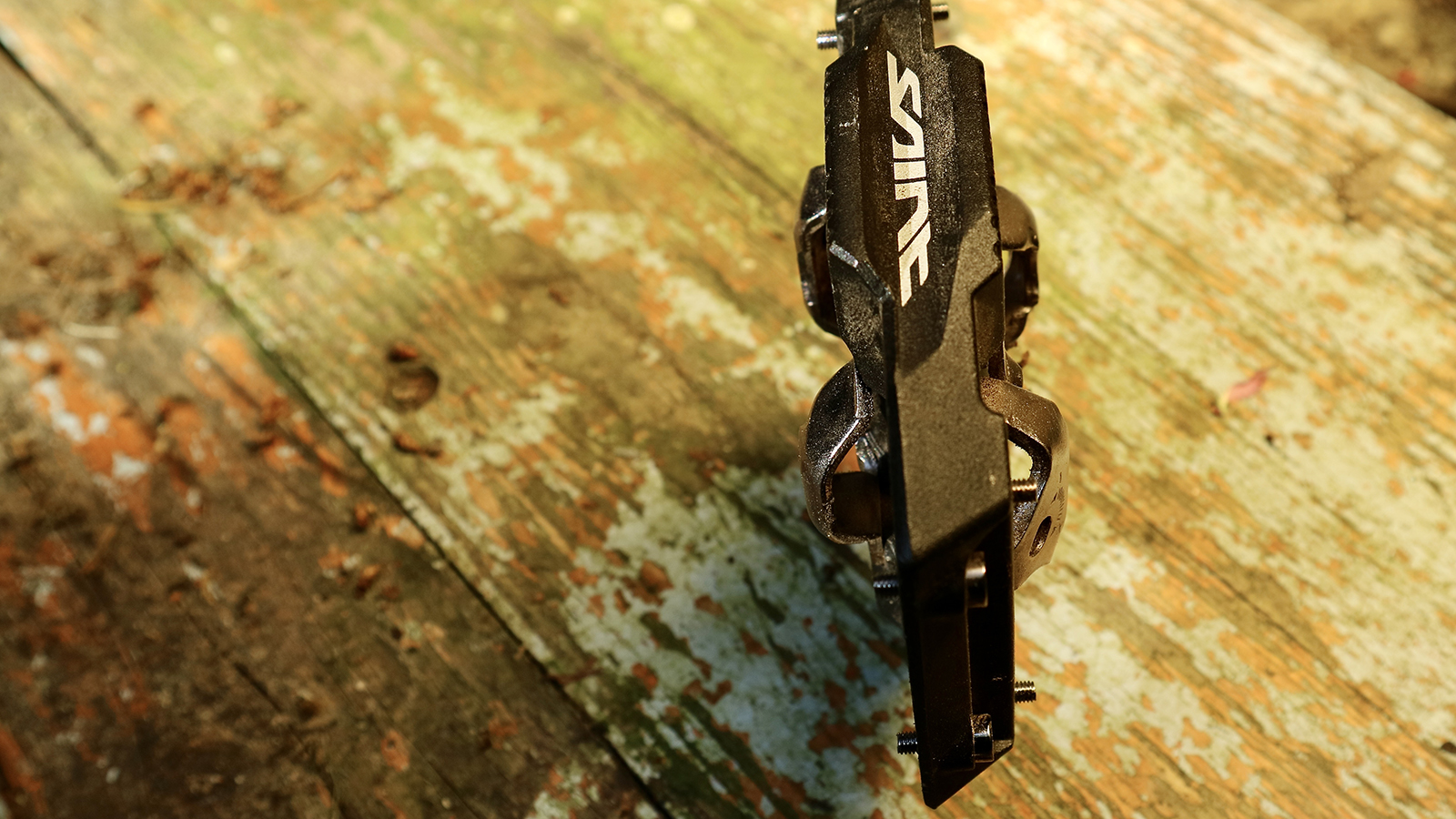
Verdict
The best thing about the Shimano Saint is the ease of engagement. When you’re in you know you’re in. There’s no vagueness, no excess float and, with its shallow release angle, you can also unclip quickly without keeling over. This pedal is also reliable, easy to service (with the right tools) and has a heavy-duty platform that will take some heavy-duty hammering. If you’re a big rider or abuser, the Saint will be your savior.
Tech specs: Shimano Saint PD-M821
- Price: $159.99 / £124.99 / €154.95
- Weight: 556g (pair)
- Platform size: 75x100mm
- Materials: aluminum body, steel binding and axle
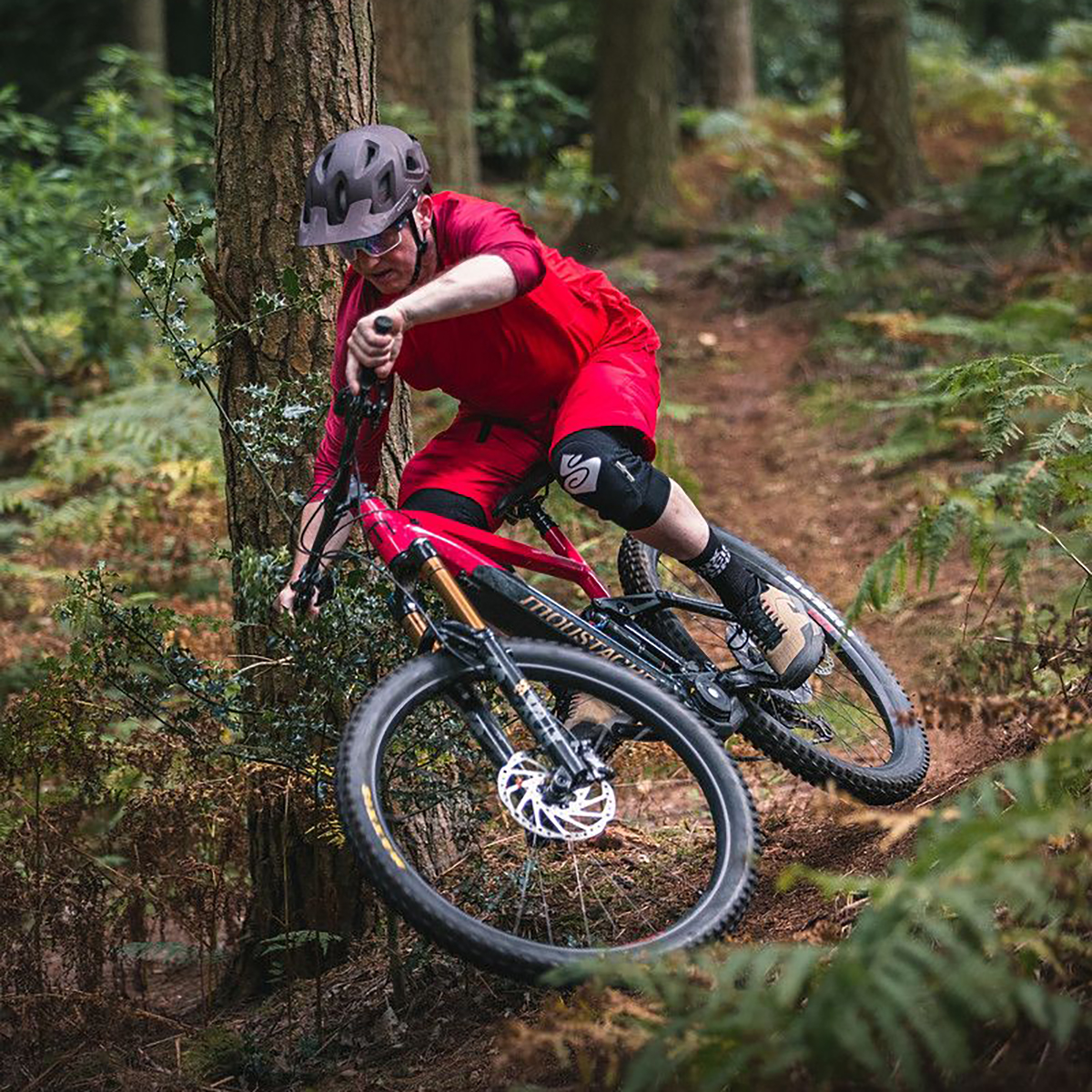
Paul has been testing mountain bikes and products for the best part of 30 years, he’s passed comment on thousands of components and bikes, from the very first 29ers and dropper posts to latest e-MTBs and electronic drivetrains. He first put pen to paper for Mountain Bike International magazine but then contributed to What Mountain Bike, Cycling Today and Cycling Weekly magazines before a 20 year stint at MBR magazine. An ex-elite level XC racer, he’s broken more bones than records but is now sustained on a diet of trail building, skills coaching and e-bike trail shredding.
